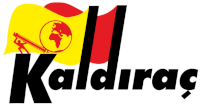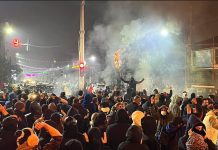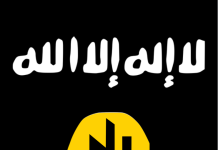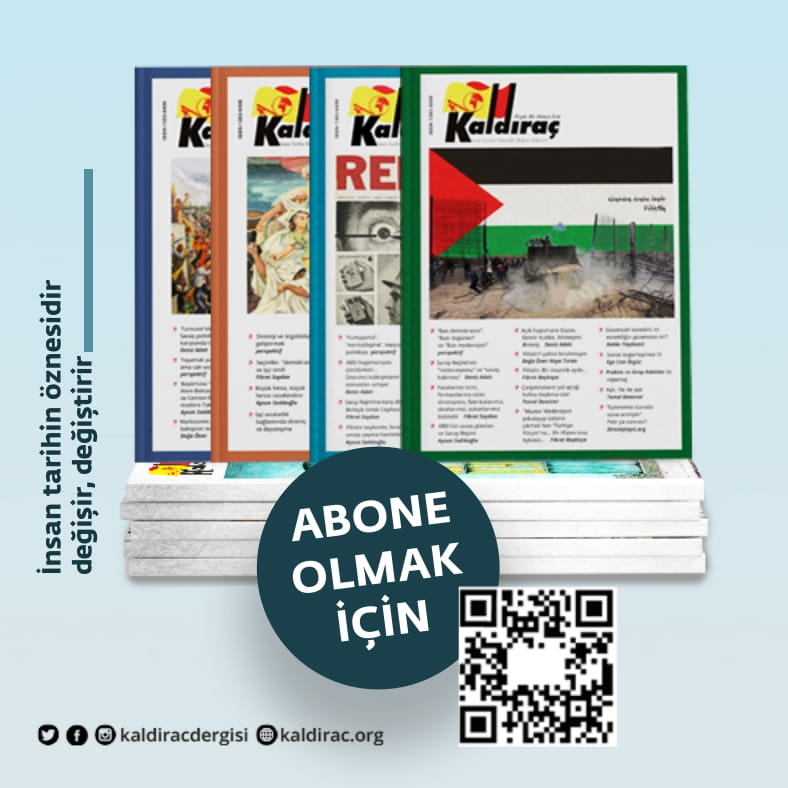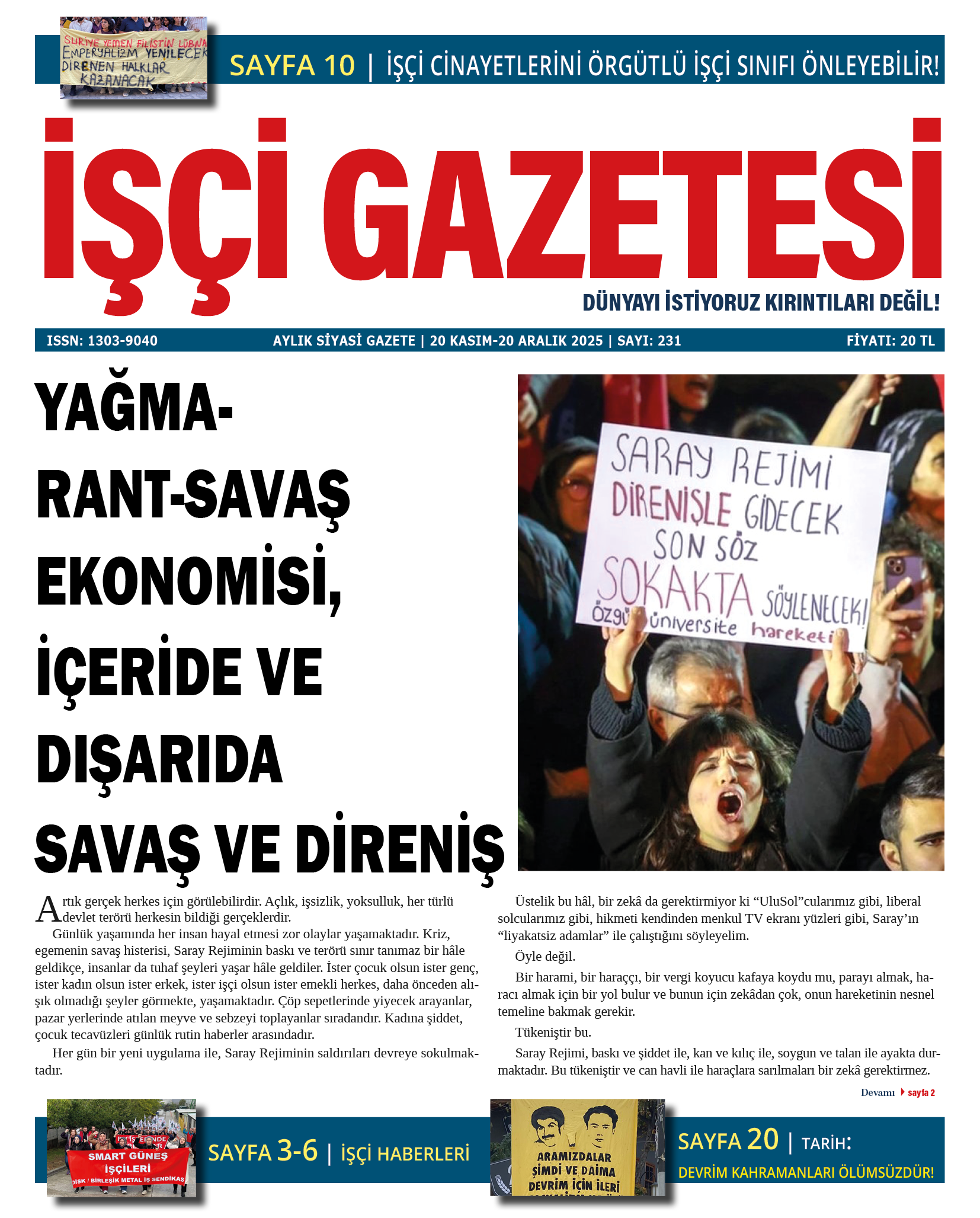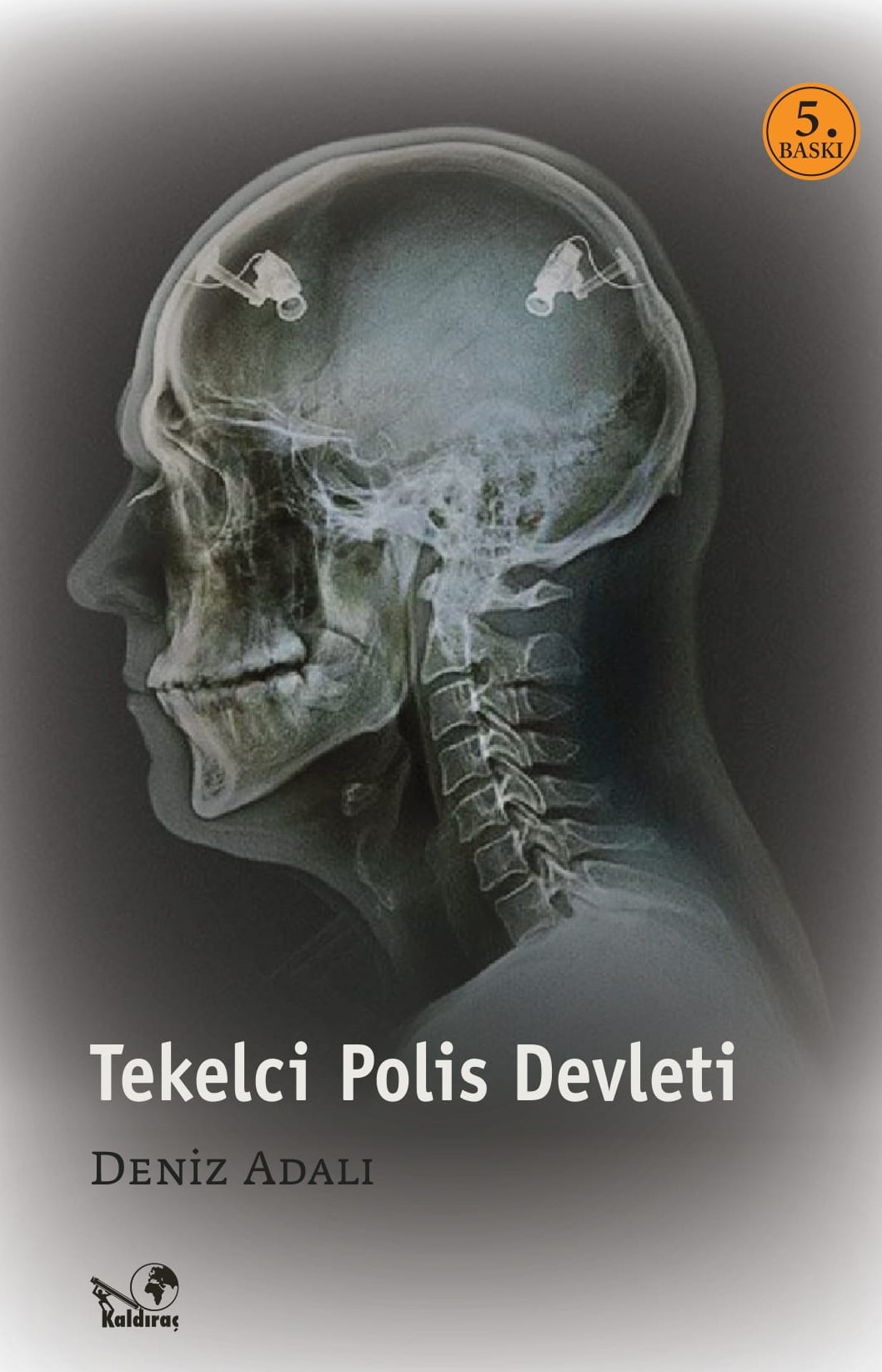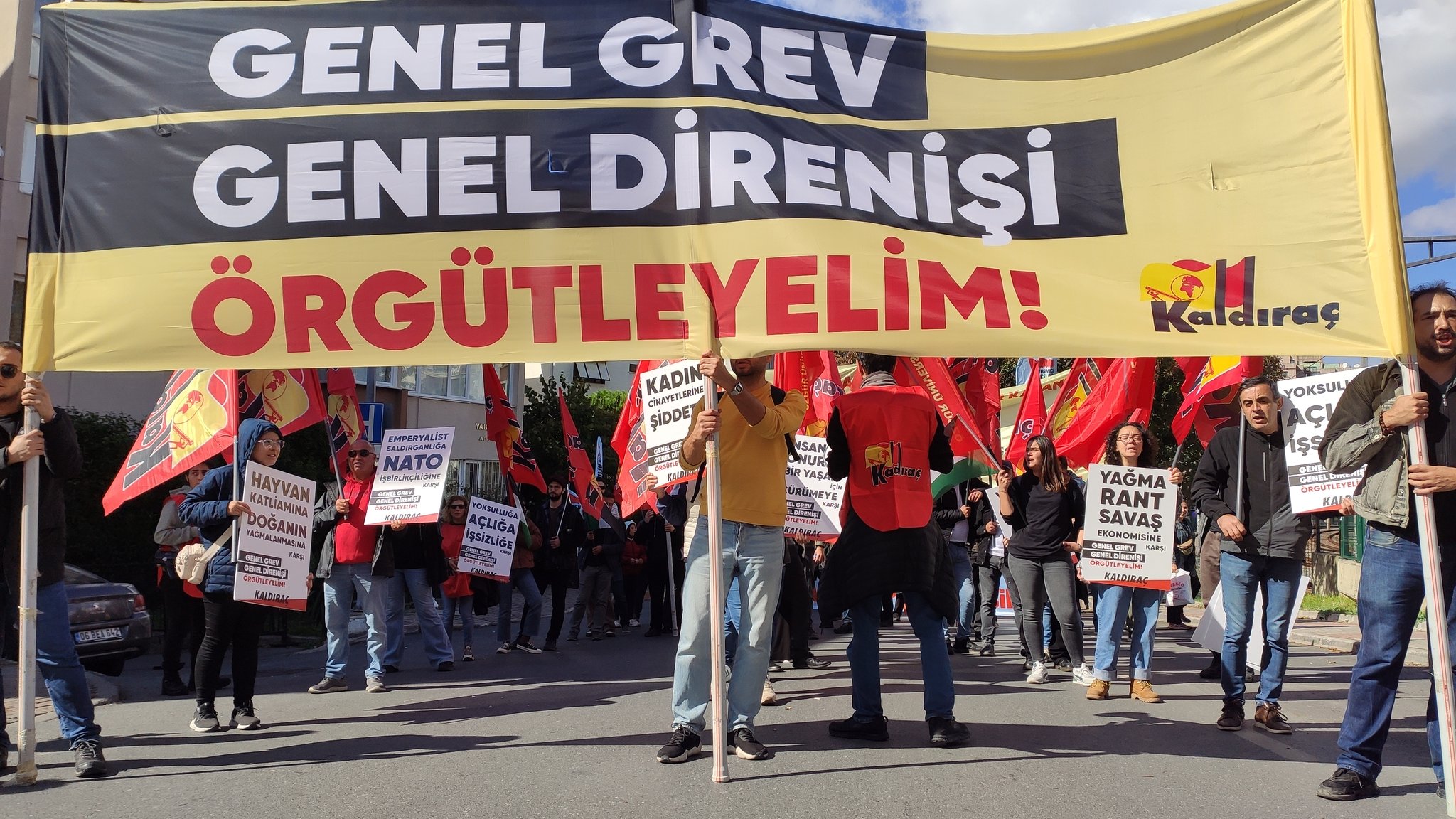D.Adalı
7 September 2023, Issue 266
After the election spectacle of May 2023, the Palace Regime is showing some changes within itself. These changes are of particular importance for us, the Marxist-Leninist front, its militants and intellectuals.
That is because prejudices about the state are widespread on the “left” front, and these are the result of a process that carries the “Kemalist” influence until today. In particular, as the revival of the “Turkish-Islamic synthesis” by the AK Party “scares” the left into defence, this Kemalist influence is being revived. As is well known, the Turkish-Islamic synthesis is actually an extension of the US “Green Belt” project and has been active since the 1970s. The Gülen Movement, Erdoğan, Taliban, Al-Qaeda etc. are parts of this project, units that have been shaped according to the present moment and geography.
It is universally recognised that the AK Party is a US project. While saying this, it is necessary to emphasise where the speciality of the matter comes from.
Turkey is a colonial country. Many leftists, even those whom we take more seriously, like to consider Turkey not as a colonial country, but as an independent one. But for some reason, in this independent Turkey, the state is being shaped by US projects. They do not ask themselves how this is happening.
Turkey is a colonised country, economically under the control of the EU, mainly Germany and France, and politically under the control of the US. The NATO mechanism allowed, and still does so, this “joint” colonisation, but this is a problem.
In other words, when one states that Turkey is a part of the West, “looking for civilisation” in these words actually means thinking with habits, with the ideology injected by the state. The imperialist powers of the West, for example, inject the same thing into Africans: to be pro-Western, to be part of Western civilisation (whatever that means). However, this Western civilisation was built on blood, on colonialism. If one day there will be a day of judgement and everyone will have to answer for what they have done, when it is the West’s turn, no one else’s turn will come, as their sins and crimes will not end. Massacre and colonialism is their tradition.
And the “statist intellectual” of our country, whether he or she has not yet sold or hired him or herself to the state, is a Westernist with an inferiority complex. And this inferiority complex, for the intellectual who does not confront and come to terms with it, is the basis of the NATO education. This inferiority complex could be converted into admiration of the West by its masters with 100-dollar allowances. First, “power” is shown to him/her, then asked to serve this power at the cost of being a dog, and this service is demanded at the level of admiration.
I suppose that in many African countries, even though they are colonies, service to Western imperialism is not done with such admiration, with such dishonour.
Due to this tradition, prejudices about the state are deeply rooted and now, through the hands of the “leftist” “intellectuals”, it is sought to be infected into the workers’ movement and the revolutionary movement through the sections that we generally classify as the literate squad (LS).
Therefore, once again it is necessary to deepen the discussion on the current situation on the axis of the state. I presume that the intellectuals of our front, whether they have different political orientations or not, have to work together on this issue.
Let us say from the beginning that for the Turkish state, for the Palace Regime, the era when the stars of the Ahmet Hakan’s, the Abdülkadir Selvi’s shone brightly is over. Now, in their place, the period of duty of Westernist, NATO-educated, left-looking, sold-out intellectuals begins. Here, there are signs of an ideological attack against the left, the revolutionary movement and revolutionary values.
For this very reason, everything must once again be settled in its proper place.
I know that the tendency of “intellectuals” to read is decreasing in our country. It is evident that the match spectators, who sit in a pub and talk as if they know everything, have infected everyone like some kind of social disease. No one seems to have time for serious discussions anymore. Everyone is confined to repeating their own truths.
In fact, this is the attitude of an unorganised intellectual. However, an intellectual in the genuine sense of the word does not hesitate to tell the truth as it is, whether s/he is in a revolutionary organisation or not, whether s/he holds a gun in his/her hand or not, as the expression goes. In other words, even if s/he cannot do it himself/herself, s/he does not cease to put forward clearly what must be done. We call this being committed to the truth. Just as the tree is connected to the soil with its roots, being connected to the working class movement, science and social reality. That’s how you become a plane tree.
For this reason, the intellectual of our front never stops reading, never stops struggling. Reading is perhaps a small part of it.
Moreover, the path opened by our revolutionary movement in the ideological field is not only specially closed and kept in darkness by the bourgeois intelligentsia, but also a special effort is made to keep the intellectuals who have established ties with the state away from it, away from the revolutionary line, away from revolutionary politics. That is also the reason for this policy of keeping in the dark.
Nevertheless, in order to understand the current events and processes, in order to correctly equip the labour movement, it is essential for us to look at what is happening from a slightly wider perspective. Precisely we are passing through such a period.
Undoubtedly, there will be points that we have left incomplete. This is inevitable. Therefore, we have to call on all revolutionary intellectuals to take part in this issue, to intervene more actively.
1
We should start with the debates on the Turkish state.
In our Anatolian culture (indeed, Anatolian culture does not always consist of positive things, perhaps there are even more negative ones), it is not very important to properly place something in the right spot, to deal seriously with theory from this point of view. For the sake of acting in accordance with the saying “all right on the night”, even when dealing with the state, this diligence is not shown.
We called it the Palace Regime.
Our analysis of the Palace Regime is based on analyses of the Monopolist Police State, which perhaps our “intellectuals” who discuss these issues have never bothered to examine. So, if the Palace Regime appears to you to be a somewhat appropriate nomenclature, you should take the trouble and have a look at our study on the Monopolist Police State, which has been available to readers since the 1990s.
For it came after a period in which discussions on fascism were at the forefront, and it emerged at the beginning of the years when the USSR was dissolving.
The discussions on fascism are known. We know that discussions on the one hand on fascism that comes and goes, on the other hand on fascism in the process, etc. are on the agenda not only of those who want to obscure the issue, but even of serious Marxist people. From this point of view, it is necessary to analyse the issue of the state a little more closely.
One tendency is to say that since we know that the nature of the state is bourgeois domination, the details do not matter, and this is wrong. It is to underestimate the issue. It is to bypass the effort to recognise the enemy. The second is the wrong analyses on this matter. Despite all their inaccuracies, we take all these analyses seriously. Moreover, we take seriously not only the analyses from our side, but also those of the liberal left. Perhaps it would be appropriate to mention a few of them here.
For example, AKP-MHP fascism is in fact used to describe the change in the state, the “new situation”. However, it is not correct; moreover, it is “blinding” rather than enlightening. It is as if a practical nomenclature is needed. In reality, the need for a practical nomenclature is important, but this nomenclature means bypassing this “significance”.
The nomenclature AKP-MHP fascism, for example, ignores the role of the opposition parties, namely the CHP and the IYI Party, in the system we call the Palace Regime. For this reason, it has become a tactic, and for some even a strategy, to follow the CHP’s tail during the election process.
However, the Palace Regime is, in fact, an extraordinary organisation in which, since 2015, the electoral system and parliament, bourgeois political parties, etc. no longer matter. AKP-MHP fascism means not understanding or naming this organisation correctly. If not naming it correctly is not a deliberately chosen path, that is, if it does not have a purpose that we cannot conceive, it is actually a serious problem and serves as a basis for the stance of hanging on the tail of the CHP.
In truth, the Palace Regime is not only a nomenclature that expresses the ruling government. The Palace Regime is also an expression of the Turkish state’s war vigilantism on behalf of imperialism, its war policies against the Kurdish revolution, and the civil war stance it took after the Gezi process. In this respect, it is the extraordinary organisation of the monopolist police state (this is a notion, by monopoly here is meant the change of the state, otherwise it is not related to the “police state” as called by our jurists). This organisation assigns a particular task to the bourgeois opposition parties. The behaviour of the CHP and others during and after the election process has made this task more obvious. The bourgeois opposition has played a very active role alongside the civil war law of the Palace to suppress social reaction and opposition. Even today, for example in Akbelen, the visit of the CHP leader with 10 people is clear evidence of this. While it should be “expected” for an opposition party, even a bourgeois one that lost the elections, to go to the Akbelen resistance with a group of 10 thousand people, Kılıçdaroğlu, in accordance with his role and the orders he received, went there and sufficed to say “we are behind you, we will carry your demands to parliament”. This is making fun of the resistance. Which parliament is he talking about? As we say to those in the palace, “what have they been drinking that they are like this”, shouldn’t you also ask this question to Kılıçdaroğlu’s CHP? When the protesters reacted against them, Cumhuriyet and Halk TV cadres who had been added to the CHP and some journalists started to say “this protest is excessive anyway”. The CHP leader could not respond by saying “stay at home”. This is now an already exhausted path. Instead, in order to say “don’t overstep your limits”, he said “we are standing behind you, we will take it to parliament”. However, why is it excessive that the people, workers and labourers, women and young people, in short, the people of the resistance do not want you to be behind them, but to be with them? Haven’t the words “we are behind you” been enough?
Therefore, the way to understand this bourgeois opposition is actually passing through understanding the Palace Regime. In other words, all parties, including the CHP, are organisations of the Palace Regime.
In the same way, the “one man regime” or “patrimonial sultanate”, as our dear teacher Kalaycıoğlu calls it, is an attempt to cover up the state organisation. It is an attempt to define a thing from its outermost, outward form.
The idea that “Erdoğan’s downfall is the main contradiction, the first task” is based on these analyses. In line with this “one-man regime” and “patrimonial sultanate” definitions, it has become a strategy to follow the CHP as a continuation of the idea that if Erdoğan goes, democracy will come.
What about now?
As we know, Kılıçdaroğlu had won on the evening of 14 May. Fine, but isn’t leaving the election at 49.50 per cent with such an arrangement a creation of the NATO mind? Is it a confession to say, “Actually, we ran against a candidate who had the entire state behind him”? Was it unknown?
Now, is the hope of those who say “Erdoğan must go, democracy will come” left to the elections 5 years later or to the masters, the US, to send Erdoğan away? Is this your solution proposal? Now, let’s hear your proposal, gentlemen.
Linking the whole struggle to the electoral calendar is an attitude that the revolutionary movement must strongly reject. Moreover, it does not coincide with the reality of life. The working class and labourers are living in a severe situation. Suicides, armed deaths, kidnappings, femicides, labour homicides, imprisonment of the youth, continuous stoppage of education, etc. in the country are the product of which conditions? Under these conditions, are you going to suggest that we wait for the local elections now, and then wait for the general elections and re-examine the situation in 2028?
This policy is bankrupt and soon this bankruptcy will manifest itself explicitly in every social event.
In the process, the shift of the left to the right has been implemented.
The Islamic practices, which are brought to the fore due to the debates and opposition within the bourgeois sovereigns, have locked the left into protecting the system in its most backward form. With the perspective that secularism is going out of hand, the left is experiencing an inconceivable process of swinging to the right.
At this very point, the analysis of “Islamofascism” is brought to the agenda.
Analyses of Islamofascism make references to Iran. Iran, which is a target of the US and NATO, is thus presented as a bad example.
However, there is no “Islamic” form of fascism. It is a state organisation. As an example, the system in Iran is a capitalist system. If you ask the working class there about this, if you take the trouble to look at the ongoing struggle in Iran on this issue, you will get a very practical answer.
The desire of the US, in line with NATO’s war policies, to create a front against Iran is just like playing with nationalist perceptions about Greece or Armenia. This is what the ruling, international capital wants. A lot of effort is being made to make the Turkish state a part of the war policies against Iran. It is a well-known fact that Mustafa Balbay and the old squad of Cumhuriyet were very keen on this issue. Now, NATO has stepped in to bring these groups to the stage again. Ahmet Hakan may be replaced by Balbay. Even if Ahmet Hakan is not very enthusiastic about this, Balbay will be very enthusiastic as ultimately it’s a matter of the dollar.
The Turkish state, namely the Palace Regime, which is the extraordinary organisation of the Turkish state, has always made use of nationalism and Islam throughout its history. With NATO, the Islamic ideology started to gain more prominence. This process has come until today. Today, the “Turkish-Islamic synthesis” is the official ideology. This ideology was caricatured during the Palace Regime and started to be called “local-national”. One reason for this is that Islamic ideology and nationalism do not work as they used to. In this process, the system-dissolving effect of the Kurdish revolution is an important factor. Now, Islamic ideology is wanted to be used as a regulator in a way that nationalism will become more significant. The Islamic discourse is, in fact, being used as a threat to ensure that the liberal left, the left, is locked into nationalism. This, of course, also possesses a reality. But “Islamofascism” can be considered as part of the programme to save the state. From this point of view, it is quite shoddy and artificial.
But all these discussions might be taken as a sign of the necessity of a serious discussion regarding the state.
The analyses closest to our front are such analyses as “fascism in process”. These, in fact, stem from a failure to understand the changes in the state during the period of monopoly capitalism after the October Revolution, including the Second World War. There is no such thing as fascism in process. The state is shaped according to the struggle between the classes, that is going on both locally and internationally. It is necessary to analyse imperialism, and by the same token the formation of the capitalist state in the age of monopolies, in the light of this class struggle. Each thing always has a historical and social or a space and time dimension. Without these, something cannot be analysed correctly.
2
The Turkish state cannot be perceived correctly without understanding the colonisation process starting from the Ottoman Empire. Ottomanism, Islamism and Turkism are processes that emerged within this colonisation process, even if they are not in their old forms today. In this regard, we can refer to the writings of our movement. In order not to write the same things over and over again, we can suggest a look at our study “Anatolia, Yesterday, Today, Tomorrow; History and Revolution”.
Ottomanism, under the influence of the French Revolution, aimed at “liberating” the Ottoman Empire by organising it as a “nation state”. In this respect it is weak. It is weak because it omitted the colonisation process of the Ottoman Empire and moreover, there was no such people as the Ottomans. Nevertheless, Ottomanism, under the leadership of Namık Kemal, also proposed a kind of democratisation. The calls for a constitutional monarchy were of significance in this respect.
Today, Ottomanism is brought forward as a basis for the policies pursued in the region on behalf of the US, as a requirement of its role as the triggerman of imperialist war policies. Yet it is still weak.
Islamism, on the other hand, lost its function in a sense after the Balkans, in other words, after the non-Muslim population of the Ottoman Empire had been largely disengaged. It was emphasised by the palace as a way of keeping the empire together. The Caliphate was tried to be used in a way that it had not been used before. In this respect, it meant clinging to the Islamic emphasis on the “ummah” in order to keep the state together. Of course, it also meant the ground for different kinds of violence and massacre policies.
Today, Islamism is again being used to act as a triggerman in the region on behalf of the US. The Turkish state’s ties with elements such as Al-Qaeda and ISIS are, of course, in line with NATO and US policies and are more suitable for the utilisation of Islamism. In any case, with the “Green Belt” project, many Islamic elements can be controlled by the US. Furthermore, in many places, these Islamic elements, which the Turkish state thinks are under its control, have in fact been temporarily handed over to the Turkish state under US control.
The loss of the Ottoman lands in the Arab geography and Africa changed this process. When a new situation emerged on the road from empire to colonisation, the state embraced Turkism. As foreseen in the famous Wilson Principles, Turkism was developed in accordance with the clause of “making the Turkish element dominant in the lands remaining from the Ottoman Empire”.
“This state needs a nation” meant that all the positive aspects of the French Revolution had been erased. In this situation, as colonisation materialised, the state started to implement all kinds of massacre policies on a larger scale for the sovereign, new “nation identity”.
In this process, the October Revolution took place.
Now, “a society without classes and privileges” and “Turkish nationalism” could have emerged as two directions in the activation of anti-communist policies.
In broad outlines, this process is the process of organising the Turkish state as an outpost against the October Revolution, between colonisation and the massacre policies of the state. It is appropriate that Fikret Başkaya draws attention to the nature of the state under these two aspects in the light of these massacre policies.
Moreover, the period of the earthquake is characterised as a natural disaster because the massacring nature of the state is forgotten. The state is only accused of being late and incompetent. However, without understanding war policies and massacres, the attitude towards the earthquake cannot be understood. The attitude towards the earthquake cannot be understood without understanding the fact that there is a civil war and a state of emergency in the country. In order to say that taxes and tributes are imposed for the earthquake costs, one must ignore these. Which is what they are doing. This is why the bourgeois opposition, leaving aside the reality of the earthquake, quickly turned to electoral politics, and the left, which has been following the CHP, has been too late to realise these policies.
After the Second World War, the Turkish state was reorganised under US control against the USSR. As a joint base of the West, it became one of the centres of anti-communist practices.
After the dissolution of the USSR, the struggle for the redistribution of the world between the Western powers, despite the existence of NATO, came to the forefront. The question of whether Turkey will remain in the hands of the EU, to which it is economically tied, or the USA, to which it is politically tied, has emerged as a de facto question. The structure of all these gangs, cults, etc. has been shaped according to this new situation. Therefore, now, in every important organisation, there are the forces of the USA, Germany, England, and in the manner connected to them, the forces of Israel, France, etc. For this reason, the Gülen Movement is also under the influence of more than one power, as is the AK Party, the CHP, each of the cults, and the mafia groups affiliated to them.
The Syrian war and the subsequent situation in Ukraine have made this process even more complicated.
While in the previous local elections the EU took a stance against the US policies, in the recent elections the EU started to comply with the US orders, whose control and supervision it accepted due to the Ukraine war. Therefore, in the last elections, the whole West, under the umbrella of NATO, organised the elections and these election results are the product of US wishes.
3
The Palace Regime is still preserved its existence after the elections. Because there is still a need for extraordinary organisation. For this reason, we have repeatedly declared that the issue should not be handled as a matter of Erdoğan. In fact, the main concern was the continuation of the Palace Regime. They have achieved this.
But the new era has different characteristics.
The palace cabinet is independent of parliament, just as before. The parliament is dysfunctional. To a large extent, the parliament is a place to keep the bourgeois opposition forces in line, to provide a cover for the system. Through the parliament, the perception is sought to be created that there is some kind of “democratic” system.
Many “intellectuals”, looking at the existence of the parliament, are able to state that there is, in fact, a democracy in the country, even if it is not functioning, even if it is bad.
Again for this reason, the left, looking at the elections, declares that people actually voted for the regime of the Palace. Above all, even though many people admit that the elections were rigged, they also claim that the people, especially those in the earthquake zone, voted for the government, since there is not enough evidence to prove otherwise.
The discourse is as follows: if they voted for the government, let them bear the consequences.
Yet everyone recognises that the elections were rigged. In that case, how can they claim that the people voted for the ruling party? Where is the proof of this? If you believe the official narrative, unemployment in the country is 9.6 per cent, inflation is around 50 per cent, etc. How will you prove that they are lying about these figures?
Is this a question or not? Yes, it is not a proper question, since everyone, even the most ordinary people, knows a little bit about what inflation is and how much it is. But the official lies of the state always have a certain power.
As in the pre-election period, bourgeois political parties are defunct. That is to say, the cabinet of the Palace Regime is independent of the parliament, the political parties are one party, the parliament is insignificant, the electoral system is dysfunctional. These factors continue as they are.
Yet, we must also recognise that there are some differences.
a
This new cabinet is a war cabinet. The new Minister of Foreign Affairs, the former Head of National Intelligence Service, the new Head of National Intelligence Service, the new Chief of General Staff and Minister of Defence, the new Minister of Treasury are proof of this.
Erdoğan does not have his old function and role in this regard.
The illusion that Erdoğan is anti-US must have lost its meaning. Erdoğan has accepted all NATO’s demands. The lie that the US does not want Erdogan but that he is supported by Putin has been exposed. This is not because of Erdoğan’s words or behaviour, but because of the role played by the new cabinet.
On this occasion, we can clearly observe that as soon as NATO channels broadcast that Erdogan is anti-American, this view is quickly accepted by everyone. Those who do not care about the evidence of electoral fraud accept this view as it is, without looking for evidence of Erdoğan’s anti-Americanism. The liberal left plays a bigger role in this than one might think.
The nature of the regime cannot be understood by looking at Turkey’s relations with Russia, which, to what extent they are friendly, is also a matter of debate. The ongoing war between the Russia-China front and the West, particularly in Ukraine, is causing ambivalent attitudes in many countries. These positions cannot be characterised as meaningful without a radical transformation. Before the First World War, the Ottoman Empire, for example, might have considered much closer to Britain, but in the end the Ottoman Empire joined the war on the side of Germany. Before the First World War, different treaties were being concluded every day, and the following week new treaties would emerge that ignored these treaties.
Turkey is a NATO member and its position on this subject is clear. Unlike Denmark, for example, it is both a colony and very close to Russia. The relations that this requires do not continue despite the USA.
As the clouds of war become thicker, as the fronts become clearer, everyone will begin to seek their own place.
Today, the Palace Regime has set up a post-war war cabinet, headed by NATO. This is new. It is new for the Palace Regime.
In connection with this, what is new for the Palace Regime is the shaping of the Turkish economy exactly according to the wishes of the West. This can be called a kind of “Düyûn-ı Umumiye (debt relief)” programme. This practice goes beyond the IMF programmes.
b
The Turkish economy has been taken under control by Şimşek and the the Central Bank (MB) chief “lady”. It is possible to assume that there is a secret agreement on this issue.
It is possible to identify two aspects of this agreement with the two-month practices so far.
Firstly, foreign debts have been taken under control by international capital. Turkey is economically bankrupt. A new process has been created in accordance with the war cabinet. Şimşek is the officer of this new implementation and that is why he speaks from time to time through the words of the opposition parties.
This black lightning bolt, disguised as a knight of the temple, is an officer of a treaty guaranteeing the payment of economic debts. Finding and uncovering this agreement could be the work of brave journalists, if possible.
This agreement stipulates that the debts should be paid directly by an international consortium, without the money entering the country, and that Turkey should be re-borrowed accordingly. Accordingly, for example, if there is a debt of 20 billion dollars in August, and if this debt was acquired with an interest rate of 11 per cent, in return for the repayment of this debt, a new 20 billion dollars will be added to Turkey’s debt to be repaid one year later with an interest rate of 25 per cent. Thus, without dollar outflow, without the dollar bouncing uncontrollably, a larger debt is incurred. This agreement was made as the compensation for the war policies.
In this case, the second aspect arises. After 1 year, how will these new debts be paid? For this purpose, additional taxes have started to be imposed. The new taxes and debts are, in fact, the war cabinet’s budget for the additional war and the Palace will be prevented from handling these revenues. In this respect, control of the Central Bank is also necessary. For this reason, the new head of the Central Bank was proposed by international capital.
Accordingly, new profitable areas will be made available to this international capital. These may be mining sites or other resources. The Akbelen incident should be viewed from this perspective. Apparently, Limak has taken part in this process with its British partnership. One should not doubt that this is the case in many fields.
This means that taxes and tributes are not actually increasing to contribute to the earthquake zone or to pay the salaries as some liberal leftist economists first think of. On the contrary, a separate war budget is being created. Of course, the Turkish budget will cover the financing of the warriors distributed to various countries with the passports of the Turkish state.
c
The whole picture also implies a more limited, symbolic role for Erdoğan. Erdogan will be more involved in making some necessary speeches. In a way, he is retired. His field of action is restricted. This also means that he will face a brake on filling his coffers. This brake can be removed by incoming from new fields. Therefore, it is natural for him to covet the rent of Istanbul, as Kılıçdaroğlu calls it. Thus, the threat of Erdoğan can still be used as a regulator. But the country is rapidly moving towards an organisation in line with war policies.
Of course, it is still possible for Erdoğan and his cohorts to find new areas of unearned income. The resources are rich. But the priority is now the financing of the war. This does not only mean the shaping of industry in the military field. But it also means that the state, the Palace Regime, will more actively act as a triggerman for the interests of the imperialist West. In order to finance this, the West will come up with various formulae. Accordingly, for example, the dollar exchange rate will be slightly increased in certain periods. For example, 32 TL in September and October, 35 TL at the end of the year, etc. The timing of this, in fact, is mostly known by this international consortium.
Erdoğan’s diminishing role requires the bourgeois opposition to be redesigned accordingly. The IYI Party will encounter no difficulty in taking a clear position on this issue. However, the debates within the CHP will continue for some time. While the CHP wants to be structured accordingly, it seems necessary to control the new tendencies that will emerge. Because, the leftist tendency in the CHP base is not desired to influence the process as a surplus.
4
This whole process demonstrates how important the line of resistance is.
The working class, the revolutionary movement, which wants to maintain its leading role on its behalf, is faced with the task of developing the line of resistance in the masses against the shift of the left to the right.
For this, on the one hand, it is necessary to be vigilant against the new style of nationalism that will arise from the state and the sovereign. These war policies, on the one hand, make it necessary for them to keep oppression and violence in operation as they have been until today, and on the other hand, while the left is already on the tail of the CHP, it puts the task of bringing the left together with a new style of nationalism in front of the sovereign. Against these war policies, a revolutionary internationalist line that rejects all forms of nationalism must be defended with great determination.
Future attacks on this issue will no longer come from the Selvi’s, the Alçı’s and the Hakan’s. New actors with a leftist background will be introduced to the field. These leftist actors will attack the cause of the liberation of the working class with statist approaches in essence, with various versions of nationalism. Under the name of rationalism, they will seek new ways.
As an example, Halk TV has outlived its function. Now, a left-wing nationalism will be activated from there, and Merdan Yanardağ’s TELE1 will be pushed to play a role in this regard. Frankly speaking, their stance on this issue is in line with this.
This means that the new ideological attack will emerge as a different kind of nationalism. Taking a clear position against this in the ideological field is both the duty of the revolutionary movement as a whole and also the revolutionary intellectuals will have a special importance in this regard.
Secondly, the revolutionary movement must connect more closely with the masses who have a tendency to maintain and develop the line of resistance, and embrace the task of pioneering in the real sense.
The whole revolutionary movement, thirdly, has to act with the perspective of a united labour front, has to find the way to this.
This is the way to stand against the process of swinging the left to the right.
The left, which, by positioning itself on the right, is in a way making itself an obstacle in front of the labour movement and the line of resistance, will also be internally divided accordingly.
A tough struggle is ahead of us in every respect. Now the masks are falling off and everyone is openly finding their front. Under these conditions, the organisation of the working class and the development of the line of resistance will determine the outcome of the struggle.
To act only by considering what is happening on the sovereign’s front, in fact, means to narrow oneself, to underestimate the developing mass movement. Therefore, we must set our eyes on the developing resistance, on the revolutionary organisation of the working class.
